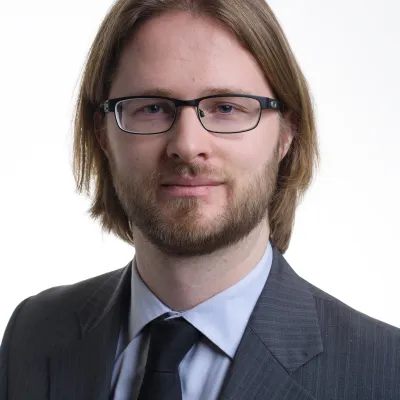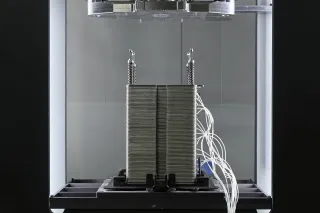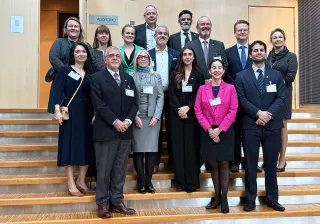Limiting the consequences of climate change to a sustainable level requires considerable actions within the society. Global energy consumption, 80% of which is currently covered by fossil fuels, must shift almost entirely to low-emission sources within the following decades. These low-emission sources include nuclear energy and renewables. At present, nuclear power covers half of all low-emission electricity production in Europe. -Small modular reactors (SMRs) under development represent a new approach to nuclear energy. The technology aims both to take advantage of new innovative solutions and serial production as well as to expand the use of nuclear energy to new applications, including district heating and industrial process heat production.
The EcoSMR (Finnish Ecosystem for Small Modular Reactors) project, funded by Business Finland, brings together Finnish actors to develop business around the possibilities of small reactors.
"The project supports Finnish industry to create an international innovation and business ecosystem that understands customer needs and the potential of Finnish technological expertise in the global energy market," says Ville Tulkki, VTT's responsible director for the project.
The project analyzes the requirements, licensing and business opportunities of nuclear technology and supports their development to meet market needs. Networks of actors, activating joint innovation activities and getting to know customers and their real needs are the key ways of working on the project. The project will also investigate the piloting of technology in Finland, as a domestic reference is an important accelerator for the export of know-how.
VTT and LUT University are responsible for the public research in the EcoSMR project. There are currently nine business partners in the project. Fortum, Teollisuuden Voima Oyj and Refinec have launched their own research and development projects, which package expertise into products and services for sale. For example, Fortum Power and Heat Oy is developing the export operations and productization of nuclear district heating within their Business Finland funded project. “We see SMRs as a significant part of the future of nuclear power. We consider it important that SMR technology and export opportunities for high-quality Finnish nuclear power expertise are developed in Finland. We want to be involved in a national project to develop our expertise and business. ” says Eero Vesaoja, Fortum's Head of Nuclear Research and Development.
There is an international demand for low-emission district heating
There are currently dozens of different small reactors under active development in the world at different stages. In the United States, NuScale Power has just completed the technical part of the certification process for its concept design, whereas in China the first Chinese SMR based on light water technology is under construction and a high-temperature pebble-bed reactor suitable for industrial use is being commissioned. SMR designers have signed memoranda of understanding on possible use in several European countries, such as Czech Republic, Poland, Romania and Estonia. The overall volume of these SMR projects is in hundreds of millions or billions of euros, so participation in these projects would mean a significant commercial opportunity.
In recent years, there has been active discussion in Finland on the transition to low-carbon alternatives in district heating. One of the options is nuclear energy. Most of the existing SMR designs are intended either for electricity generation or as an energy source for high temperature industrial processes. District heating networks operate at around 100°C temperature, which enables simpler and more cost-effective solutions. The EcoSMR project will also investigate the boundary conditions for the use of nuclear energy for district heating. The potential market for technology and expertise also includes Central and Eastern Europe, in which district heating is commonly used, and transition to low-carbon heat production is becoming a major challenge.
Research Professor for Reactor Safety Jaakko Leppänen from VTT describes the advantages of a dedicated district heating reactor as follows: “The safety design of traditional second-generation pressurized and boiling water reactors is based on active systems with high level of redundancy. The complex technology is inevitably reflected in the construction costs. Innovative new reactor concepts rely on passive safety, such as heat removal by natural circulation. The low operating temperature and pressure in district heating reactors enables implementing these passive safety features using very simple technology.”
EcoSMR is part of a larger nuclear energy research package and a sister project to VTT's dECOmm (Finnish Ecosystem for New International Decommissioning Services) project, which was launched earlier this year. dECOmm brings together Finnish expertise that is used in the decommissioning of nuclear power plants.






